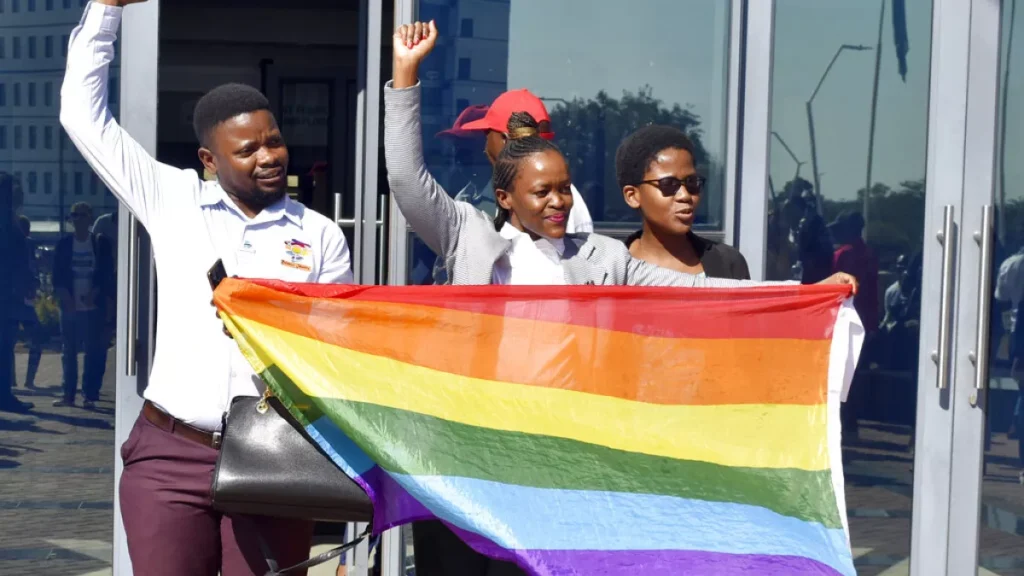In a historic ruling on Friday, June 21, Namibia’s high court declared unconstitutional two colonial-era laws that criminalized same-sex acts between men, marking a landmark victory for the LGBTQ community in the country.
The case was brought forward by Namibian activist Friedel Dausab, supported by the UK-based Human Dignity Trust. Following the court’s decision, Dausab expressed his elation, declaring, “It’s a great day for Namibia. It won’t be a crime to love anymore.”
Rights activists have pointed out that while prosecutions under the “sodomy” and “unnatural sexual offences” laws were rare, these statutes perpetuated discrimination against LGBTQ individuals and instilled fear of arrest among gay men.
Namibia inherited these laws upon gaining independence from South Africa in 1990, despite their origins in colonial rule that initially criminalized same-sex acts between men.
South Africa, in contrast, has decriminalized same-sex sexual activity and stands as the only African country where LGBTQ couples can adopt children, marry, and enter civil unions.
Conversely, Uganda recently enacted severe anti-LGBTQ legislation, including provisions for the death penalty in cases of “aggravated homosexuality,” drawing widespread condemnation internationally.
Similarly, in Ghana, there is ongoing controversy over proposed legislation that strengthens criminal penalties for same-sex relations and targets individuals and groups advocating for LGBTQ rights.
